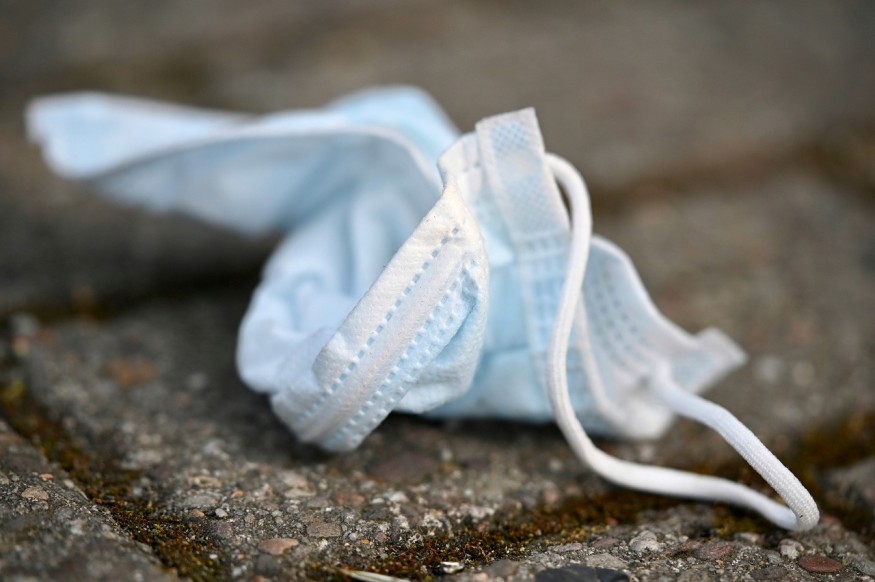As the coronavirus pandemic rages, disposable masks have become a serious source of plastic waste. There is pressure to get the people from using disposable masks and switching to various reusable face coverings.
Major Pollution
Liberal Democrats are saying that single-use masks are causing a large amount of waste. There must be more environment-friendly alternatives. According to the Green Party, ministers must induce media to show less of these disposable masks and stop normalizing them.
These masks have plastics that cause water pollution, harming wildlife if they are eaten or get entangled by them. The government of the UK is investigating if PPEs or personal protective equipment may be reused safely.

Coverings are Mandatory
Disposable and reusable face coverings are currently required when riding public transportation, in retail shops, as well as in enclosed areas in the UK to curb the coronavirus spread. In Wales, it applies only on public transport but will be applied to other regions starting Monday.
Britain's Statistics office suggested that 96% of the adult population who went out last week wore face cover. The official policy means wearing reusable and washable ones whenever possible. It says that disposable facial coverings usually have polypropylene plastic.
Environmental groups report that maybe millions of such single-use coverings are dumped irresponsibly.
Beach Cleaning
From September 18 to 25, the Marine Conservation Society will record the number of masks picked up in its beach cleaning activities. Clean seas head Laura Foster says one can see them floating in the Thames.
She adds that wildlife will get tangled in it or ingest it. The plastics won't biodegrade, and as they break up, they become microplastics that will continue to pollute the seas and our food chain.
READ ALSO: Microfibers From Blue Denim Jeans in the Arctic Threatening Aquatic Life
Preventive Measures
RSPCA wants people to snip the masks' straps once used to prevent wildlife from being trapped in them.
Liberal Democrats want ministers to encourage reusable masks and guide the people on how to clean them.
Sarah Olney, business and climate spokeswoman, says that in the COVID-19 pandemic, we must fulfill our part in keeping other people safe from infection. However, at the same time, she says that wearing masks must not be detrimental to the planet. She says that people can choose from many environment-friendly and reusable alternative face coverings beyond clinical areas and settings.
Wales and England Green Party deputy leader Amelia Womack says that the massive surge in using disposable masks came at a period when we are already swamped with plastic pollutants. As the public may be asked to use face coverings in the coming years, she urges more substantial government guidance.
Womack says that the media must not show masks in non-clinical and daily situations and that the government must ban them on its websites, films, and leaflets.
According to a government spokesperson, the priority is to uphold public health, saying that the National Health Service and the government are investigating reusing PPEs, including decontaminating them.
He says that the next two months must be devoted to informing the long-term use of PPEs, with environmental concerns being considered. The coronavirus pandemic must not cause ecological destruction from disposable masks that become plastic waste.
READ NEXT: Seaweed May Replace Plastic as Future Source of Fuel and Food
Check out for more news and information on Plastics on Nature World News.
© 2025 NatureWorldNews.com All rights reserved. Do not reproduce without permission.





